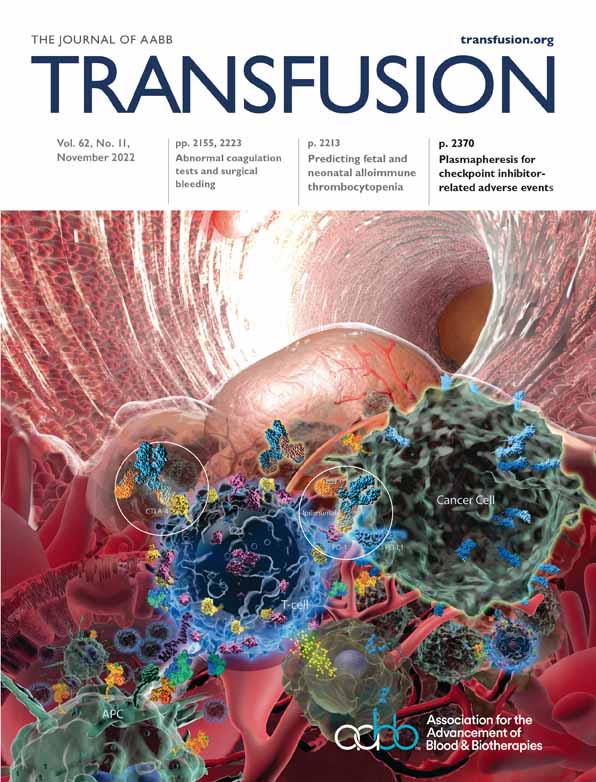Red blood cell volume, but not platelet or plasma volume is associated with mortality in neonatal ECMO
Abstract
Background
Blood product transfusions are necessary for critically ill neonates on extracorporeal membrane oxygenation (ECMO). Transfusions are administered in response to unstudied arbitrary thresholds and may be associated with adverse outcomes. The objective of this study was to identify relationships between blood product components and mortality in neonates receiving ECMO support for respiratory indications.
Study Design and Methods
A retrospective review of neonates receiving ECMO for respiratory indications from 2002 to 2019 from a single quaternary-referral neonatal intensive care unit (NICU). Demographic and outcome data and transfusion volume (ml/kg/day) were harvested from the medical record, and baseline mortality risk was assessed using NEO-RESCUERS scores. The association between volume of red blood cells (RBC), platelet, plasma transfusion rates (ml/kg/day), and mortality on ECMO were assessed after adjustment for NEO-RESCUERS score. Cox proportional hazards (CPH) competing risk model was used to estimate hazard ratios (HR) and 95% confidence intervals (CI) for each variable and mortality outcome.
Measurements and Main Results
Among 248 neonates undergoing ECMO for respiratory failure, overall survival was 93%. RBC, platelet, and plasma volume were highly associated with mortality during ECMO in an unadjusted model. After adjusting for NEO-RESCUERS score, RBC volume was associated with increased mortality risk (HR 1.013, 95% CI 1.004–1.022, p = .0043), but platelet and plasma volume were not associated with mortality.
Conclusions
RBC, but not platelet or plasma volume, is associated with mortality in neonates on ECMO. Our findings refute previous studies demonstrating an association between platelet volume and mortality for neonates on ECMO.
CONFLICT OF INTEREST
The authors have disclosed no conflicts of interest.




